Brazil’s Black travel movement embraces heritage and promotes Black entrepreneurship
OPINION: This new movement is well on its way to establishing Brazil as the mecca of Black travel. The post Brazil’s Black travel movement embraces heritage and promotes Black entrepreneurship appeared first on TheGrio.
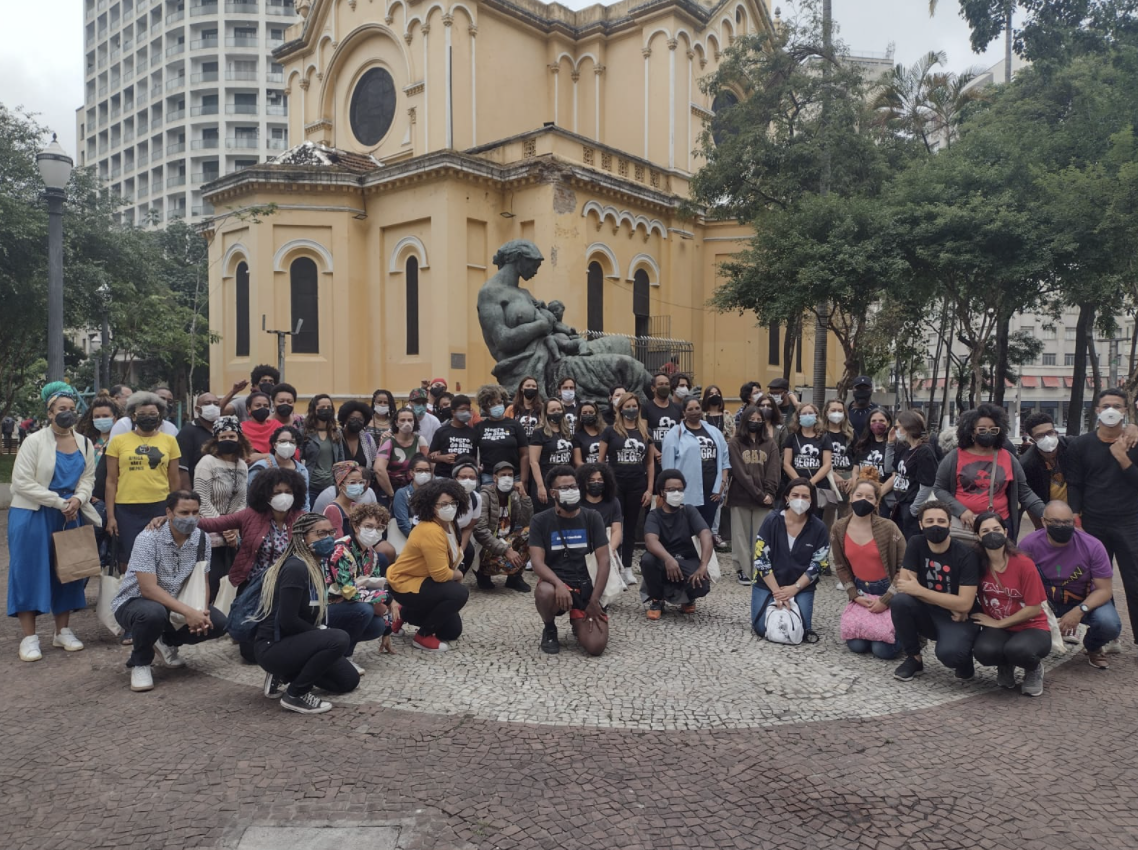
OPINION: This new movement is well on its way to establishing Brazil as the mecca of Black travel.
Editor’s note: The following article is an op-ed, and the views expressed are the author’s own. Read more opinions on theGrio.
A 2015 video produced to promote tourism in Salvador, Brazil’s blackest city, went viral that year for all the wrong reasons.
It opens with a pale white woman floating on her back in a pool and then cuts to some iconic visuals of Salvador — the Elevador Lacerda, its wide tropical beaches, the Bay of All Saints. By the time Black people appear in the commercial, they fall neatly into stereotypes as capoeira athletes, musicians, street food vendors and practitioners of the Candomblé religion. Only one of the more than 30 leisure and business travelers appearing in the commercial can be considered Black. Black Brazilians denounced the video, which was produced by a chamber of commerce promoting tourism to Salvador.
“This video hurt my eyes,” said Leticia Santana, a Black Brazilian from Rio de Janeiro who travels to Salvador every year. “It makes no sense because the Black community considers Salvador the mecca of Brazil.” Salvador, a city of three million people, is considered to be the largest Blackest city in Latin America. More than 80% of its three million inhabitants self-declare as Black, and it has long been considered the cradle of Black music and culture in Brazil.
It’s safe to say that today, no tourism agency or chamber of commerce would dare to release a commercial promoting Salvador, or any Brazilian city, as a city to be enjoyed solely by white people. Black Brazilians are traveling more than ever within and outside Brazil. In the last decade, Black Brazilians have created their own Black travel movement that values heritage tourism and promotes Black entrepreneurship. Similar to Black Americans, they share their photos and videos on social media platforms like Instagram and TikTok, further inspiring others to travel domestically and internationally. The movement has grown so much that Brazil’s government now has a coordinator of Afrotourism within its tourism agency.
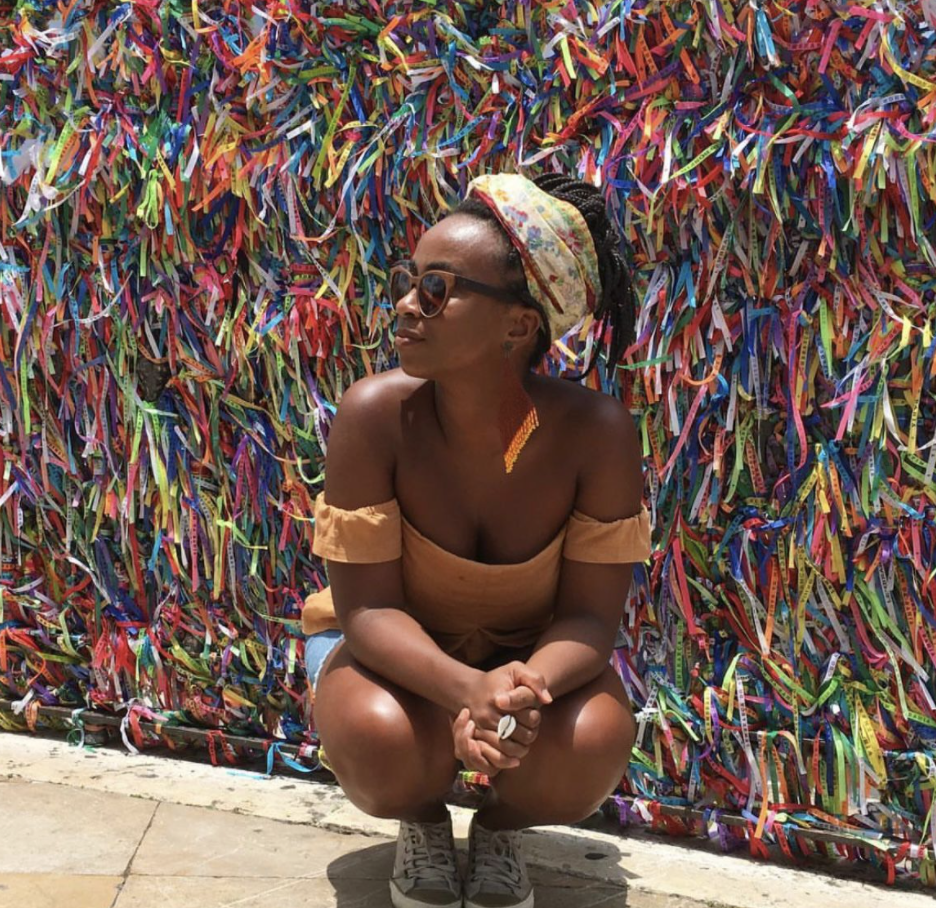
Santana is among the numerous Black Brazilian travelers representing this movement. She began traveling internationally in 2015 when she inherited $1,000 from the sale of her deceased grandmother’s house. That money funded a monthlong backpacking trip across Bolivia and Peru. These days she travels internationally every year.
“I spent that money on my No. 1 dream in my life — travel,” Santana said. “It was so expensive for me. Back then, $1,000 was like being rich.”
After completing a round-the-world trip in 2016 (27 countries), Guilherme Soares Dias returned to Brazil ready to share his experiences and evangelize travel among his Black peers. So he launched a blog aptly titled Guia Negro (“Black Guide” in Portuguese), where he has singlehandedly chronicled Black Brazilian travel through listicles, profiles and destination reviews.
He also developed a Black history and culture walking tour in São Paulo. The mega-city of 12 million people is one-third Black, but similar to Rio de Janeiro, much of its “Blackness” has been forgotten or hidden.
But Dias doesn’t limit himself to São Paulo. During Salvador’s high season, he offers a range of walking tours to discover the city’s Black heritage outside of the city’s historic center. From November to February, thousands of Black Brazilians descend on the city. Events like Festa de Yemanjá (Feb. 2), Carnival (February or March), and AfroPunk (November) are akin to homecoming weekends at an HBCU.
“When we go to Bahia, we feel at home,” Dias said. “We have a feeling that we are returning to a place we’ve already been to. So it’s a place that every Black person, especially those in Latin America, has to visit at least one time.” Dias added that, unfortunately, Black people become so enchanted with Salvador that instead of visiting other cities in Brazil or even traveling abroad, they keep returning to Salvador.
That’s a great problem for Salvador, whose Black-owned businesses pioneered Afrotourism in Brazil. Nilzete Santos started her tourism agency, Afrotours, in 2007. When visitors came to Salvador’s historic center, tour guides only showed off its 300-year-old Catholic churches. So she developed her own tour highlighting the city’s Candomblé religion and Black benevolent associations. Back then, she says, most of her clients were African-Americans. Today, most of her clients are Afro-Brazilians from Rio de Janeiro and São Paulo, Brazil’s wealthiest cities.
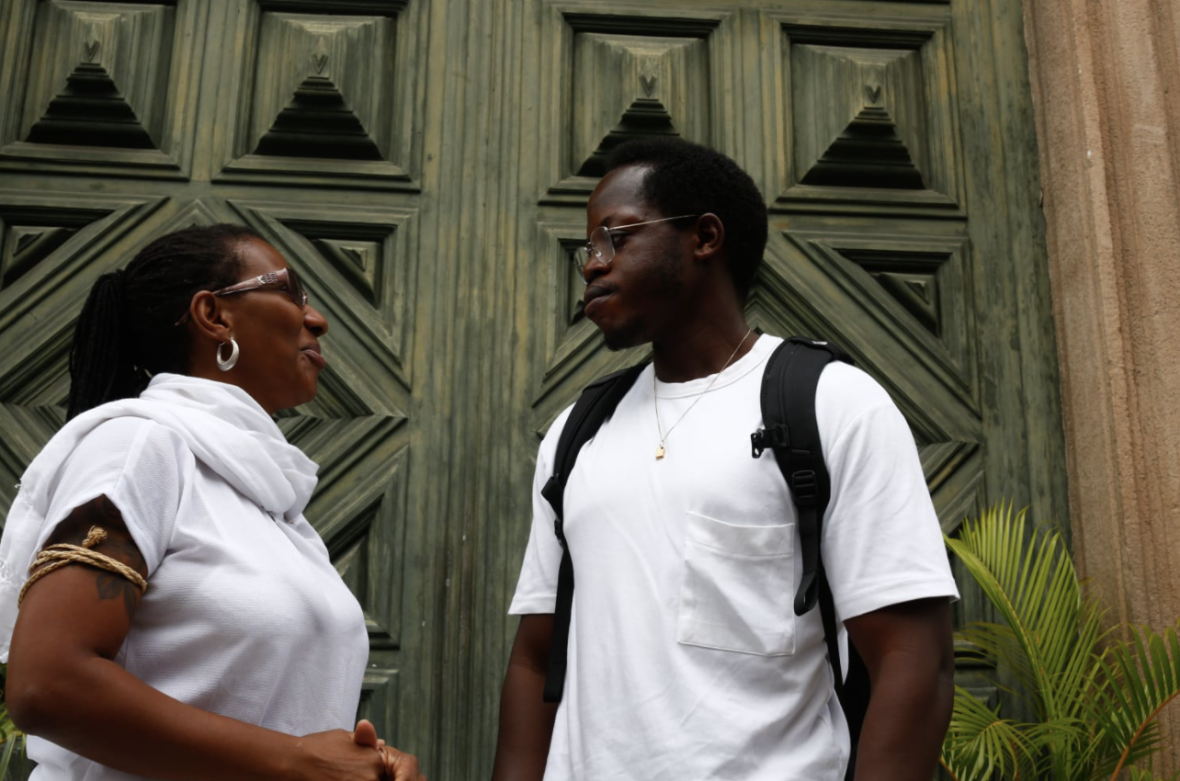
“Salvador is the mecca of Africanidade in Brazil,” Santos said. “Of course, Black Brazilians would come to seek out their roots.”
Afrotourism has become so important to Salvador that in 2022, that the city launched a campaign to position itself domestically and internationally — Salvador Capital Afro.
Salvador may be ground zero for the movement, but Rio de Janeiro isn’t too far behind. Rio, a city in which more than 3 million of its 6.4 million inhabitants self-declare as Black, is finally embracing its Black roots. Much of Rio de Janeiro’s traditional tourist circuit is being rebranded in its original Black essence. For example, Black Brazilians created Samba music and its world-renowned carnival parade.
More than two million captured Africans arrived in Rio’s ports — the most of any city in the Atlantic slave trade. With the help of entrepreneurs like Cosme Felippsen, tourists from all over the world can learn history by visiting Rio de Janeiro’s Little Africa (an area in Rio where freed Africans settled post-abolition), Pedra do Sal (the birthplace of Samba) and Valongo wharf (where most of the captured Africans landed). Sadakne Baroudi, an African-American ex-pat, has even made this information accessible in English with her online Afro-Rio walking tour.
Now Black Brazilians, similar to Black Americans, partake in group tours tailored to their interest in heritage tourism in Brazil and outside of Brazil. When Beatriz Souza created Bafrika in 2018, she launched the company with domestic trips to Ouro Preto, Minas Gerais (where Black Baroque sculptor Aleijadinho created art in Catholic churches), and Palmares, Alagoas (site of Brazil’s most famous Black self-sustaining community in the 17th century). In 2023, she is also offering trips to South Africa and Cali Colombia.
“I noticed that [travel] market didn’t have any products that focused on Blackness in Brazil as well as Blackness internationally in a contemporary urban way,” Souza said. “So I decided to create Bafrika.”
Diaspora Black, an online travel marketplace, helps Black travel entrepreneurs across Brazil reach a wider audience. It was initially founded in 2016 as a Black Airbnb with housing provided by Black homeowners. One of its co-founders, Carlos Humberto, had experienced a racist incident renting an apartment on Airbnb. So he sought to create a platform for Black Brazilians to list their housing for Black travelers. Since then, it has expanded to include tour packages, city-based tours and even online cultural experiences.
For him, Brazil’s Black travel movement reflects the social and political advancement of Black Brazilians in the last 20 years. Public policies aided in increasing Afro-Brazilians’ access to higher education and government jobs. This, in turn, resulted in greater social mobility and enlightenment about race.
“We’ve seen an increase in the self-esteem of Black Brazilians, who more than ever are seeking out their Black roots and self-declaring themselves as Black,” Humberto said.
And it’s not just Brazil’s largest cities that are receiving increased interest from Black tourists. Small Black rural communities, known as quilombos, now offer tours and workshops to meet the increased demand for sustainable and community-based tourism. One of the most heralded tourism efforts is the Rota da Liberdade (Freedom Route) in São Paulo’s Vale de Paraíba, where enslaved Blacks once worked on coffee plantations. Their descendants created self-sustaining communities that remained relatively untouched until the 1970s. With the Rota da Liberdade, Solange Cristina Virgínio Barbosa created a way for outsiders to visit the communities, eat with locals and take workshops in their crafts.
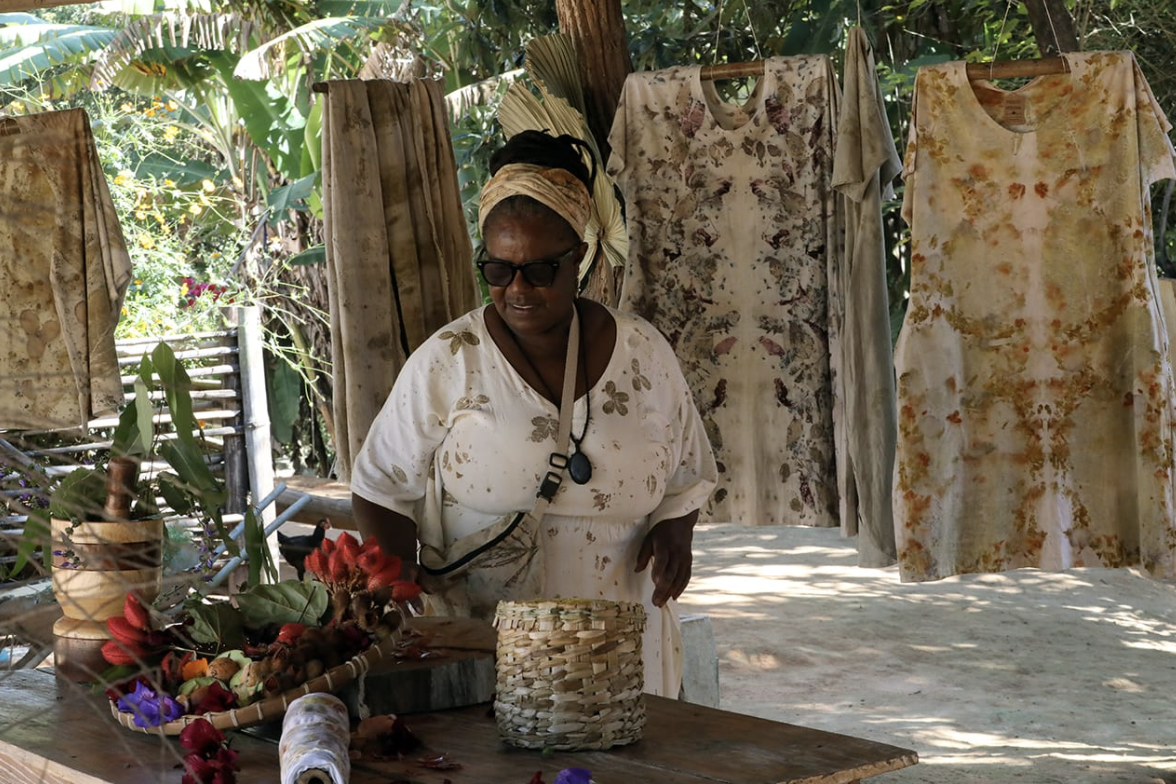
“I created it so Black traditional communities could finally be recognized in the development of culture in Brazil,” said Barbosa. “In traditional tourism, we are only shown serving people. So this allows us to show our culture and benefit from the financial wealth of tourism.”
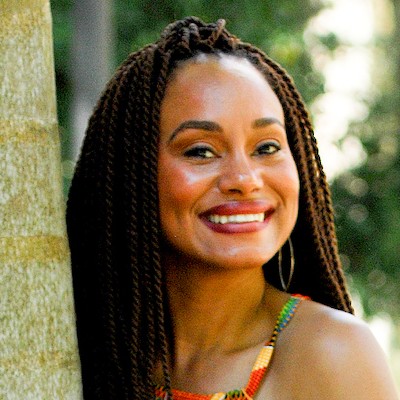
Kiratiana Freelon is an independent journalist based in Rio de Janeiro, Brazil. Her reporting focuses on social injustice, Afro-Brazilian communities, and Brazil’s dynamic economic and political landscape. The Harvard and Cuny Graduate School of Journalism graduate has worked for the New York Times and her work has appeared in The Washington Post, Essence Magazine, New York Magazine, Condé Nast Traveler, and other publications. She will publish an Afro Rio Travel and Culture Guide in 2023.
TheGrio is FREE on your TV via Apple TV, Amazon Fire, Roku, and Android TV. Please download theGrio mobile apps today!
The post Brazil’s Black travel movement embraces heritage and promotes Black entrepreneurship appeared first on TheGrio.










![Extended Trailer: ‘Building The Band’ [Starring Nicole Scherzinger, Kelly Rowland & Liam Payne]](https://150893825.v2.pressablecdn.com/wp-content/uploads/2025/06/building-the-band-netflix-kelly-rowland-liam-payne-tgj-scaled.jpg)

